
Answer:
Certain herbals, high dose vitamins, and other dietary supplements can be dangerous to breastfed babies through breast milk. Below is a list of some of the herbs and supplements that should be avoided during breastfeeding (use the links for more information). As there may be other supplements that are contraindicated during breastfeeding, always consult with your physician before taking any supplement. Of course, certain prescription medications taken by mothers may also be dangerous to breastfed babies.
Supplements and herbs to avoid when breastfeeding
Berberine/goldenseal (berberine is a compound found in goldenseal)
Butterbur — Contains compounds that may cause liver damage (Chojkier, J Hepatol 2003)
Dong quai (Angelica sinensis) (National Library of Medicine 2018)
Certain dietary supplements and herbs can be dangerous to breastfed babies through breast milk. Below is a list of some of the herbs and supplements that should be avoided during breastfeeding (use the links for more information). As there may be other supplements that are contraindicated during breastfeeding, always consult with your physician before taking any supplement. Of course, certain prescription medications taken by mothers may also be dangerous to breastfed babies.
Supplements and herbs to avoid when breastfeeding
Aloe latex
Women who are nursing should not use latex-containing aloe products (National Library of Medicine 2020). (See information about topical use of aloe below.)
Ashwagandha
There is some concern that ashwagandha could increase the risk of miscarriage in pregnant women; women who are pregnant or nursing should not take this herb (NIH 2024).
Berberine/goldenseal
Berberine (a compound in goldenseal) can cause elevated levels of bilirubin in infants, causing bilirubin-induced brain dysfunction (Chan, Biol Neonate 1993), and therefore should not be taken my women who are nursing.
Bilberry
The safety of bilberry supplementation in women who are nursing is known, and therefore should be avoided.
Black cohosh
Due to its potential hormonal effects, black cohosh should be avoided while nursing (Hardy, J Am Pharm Assoc (Wash) 2000).
Butterbur
Butterbur contains compounds that may cause liver damage (Chojkier, J Hepatol 2003).
Dong quai
Due to a lack of quality research or evidence that Dong quai (Angelica sinensis) is safe to use while breastfeeding, it's best to avoid this herb (National Library of Medicine 2018).
Echinacea
Quality studies are needed to determine the safety of using Echinacea during lactation (Perri, Can J Clin Pharmacol 2006).
Feverfew
Due to a lack of safety data, it may be best to avoid feverfew when breastfeeding (Tanacetum parthenium) (Amir, Aust Fam Physician 2011).
Gingko biloba
There is a lack of evidence for the effectiveness and safety of ginkgo in women who are pregnant or nursing (Amir, Aust Fam Physician 2011).
Kava kava
Possible central nervous depression and/or skin discoloration in the breastfed baby; rarely, it may cause allergic reactions and sedation with high doses (Romm, 2010; NIH 2020).
Kelp
Congenital hypothyroidism has been reported in infants born to mothers taking an herbal supplement high in iodine-containing kelp supplement (Stagi, Horm Res Paediatr 2010). In addition, ConsumerLab tests have shown that kelp supplements and kelp and other seaweed snacks are often contaminated with toxic heavy metals.
However, there is also growing concern about inadequate iodine intake among pregnant and breastfeeding women in the U.S. due to increased use of processed foods in which salt is not iodized. Women who are pregnant or nursing should get iodine from a supplement containing potassium iodide rather than from a kelp supplement or dried kelp snack (see our Top Picks among prenatal multivitamins and potassium supplements).
Licorice
Although licorice is sometimes promoted to help with milk production, other research suggests it may decrease prolactin, which could, in turn, reduce milk production. In addition, licorice root contains glycyrrhizic acid, which can increase blood pressure and have other adverse effects (National Library of Medicine 2018). Although deglycyrrhizinated licorice (DGL), licorice from which a substantial amount of glycyrrhizin has been removed, is available in some supplements and teas, many experts still caution that licorice in any form should probably be avoided by women who are pregnant or nursing (LactMed, Licorice 2021).
Melatonin
Melatonin is a hormone that has the potential to affect other hormones, such as estrogen and testosterone. The safety of melatonin supplementation in women who are nursing has not been well established (NIH 2024).
Quercetin
Quercetin may interfere with iodine uptake as well as an enzyme involved in the conversion of certain thyroid hormones, according to some laboratory and animal studies (Giuliani, Food Chem Toxicol 2014; de Souza Dos Santos, Food Chem Toxicol 2011). To be safe, some researchers advise pregnant and lactating women avoid taking quercetin (Giuliani, Food Chem Toxicol 2014).
Rhodiola
The safety of Rhodiola (Rhodiola rosea) in women who are pregnant or nursing has not been established (Merck Manual 2024).
Soy Isoflavones
There is a lack of information about the effects of consuming soy in greater amounts than commonly found in food (NIH 2020). Due to the potential for soy isoflavone supplements (which may contain higher concentrations of isoflavones than found in food) may affect certain hormones, including estradiol and thyroid hormones, and therefore are generally not recommended for pregnant or nursing women (Franke, Am J Clin Nutr 2006; Messina, Thyroid 2006).
Turmeric/curcumin
The safety of turmeric (which contains curcumin) has not been well evaluated for women who are pregnant or nursing.
Vinpocetine
Vinpocetine (which may also be labeled as periwinkle extract) may cause adverse effects in pregnant women, reduce fetal weight or increase the risk of miscarriage, and the FDA advises women who are pregnant or could become pregnant not use this supplement (FDA 2019). To be safe, avoid while breastfeeding.
In addition, some experts advise avoiding the following additional herbs due to a lack of evidence of safety and efficacy (Amir, Aust Fam Physician 2011). These include:
- Devil's claw (Harpagophytum procumbens)
- Hawthorn (Crataegus oxycantha)
- Horse chestnut (Aesculus hippocastanum)
- Marigold (Calendula officinalis).
Supplements and herbs to use with caution
Aloe (topical)
If aloe vera is used topically, wash off before nursing as it may interfere with feeding and cause diarrhea in infants (National Library of Medicine 2020).
Fenugreek
Although fenugreek has traditionally been used to promote milk production, evidence supporting this benefit is mainly anecdotal and side effects such as maple syrup smell emitted from the mother's body, gassiness in the baby, or breast milk oversupply have been reported (National Library of Medicine 2020).
Goat's rue
Although widely used to promote milk production, studies to support use of goat's rue (leaves and flowering tops) have been poorly controlled and there is little evidence on the safety of goat's rue in breastfeeding mothers and infants. Goat's rue contains constituents that might lower blood sugar in nursing mothers and should be used cautiously by those taking antidiabetes drugs. One woman taking goat's rue along with fennel and fenugreek to increase milk production was reported to experience liver enlargement (Drugs and Lactation Database (LactMed), 2/15/21).
Green tea
Women who are nursing should avoid large amounts of caffeinated green tea to limit caffeine exposure to infants.
Supplements that may help
Probiotics
Certain probiotic strains may be helpful for women with mastitis (Arroyo Clin Infect Dis 2010).
More information on supplements, medications, and breastfeeding
In addition to the resources on ConsumerLab.com, an excellent article on the subject of medications (including supplements) and breastfeeding is found at https://www.japha.org/article/S1544-3191(15)30430-1/fulltext.
Join today to unlock all member benefits including full access to all CL Answers and over 1,400 reviews.
Join NowAlready a member? Sign In Here.
Join now at www.consumerlab.com/join/

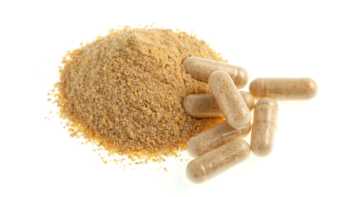
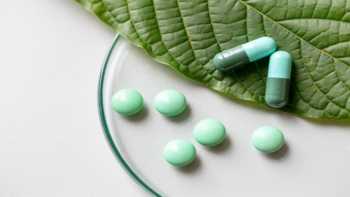
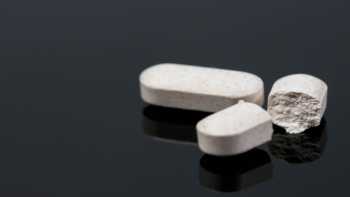
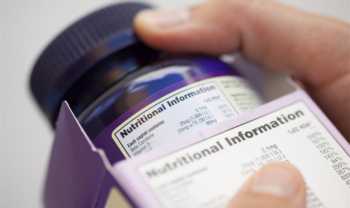
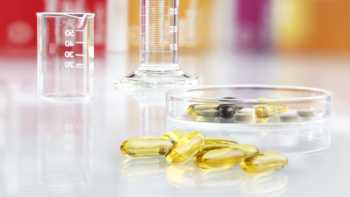
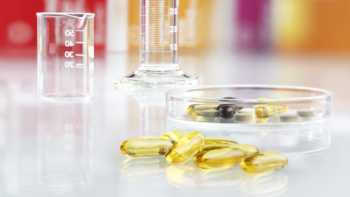

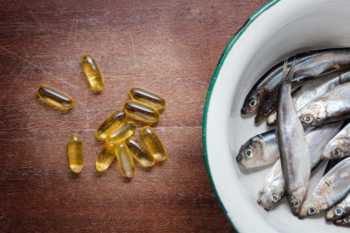





Submit your comment
This feature is restricted to active members.
Join now to add comments and get all member benefits, including over 1,400 reviews.
Join NowAlready a member? Sign in here.